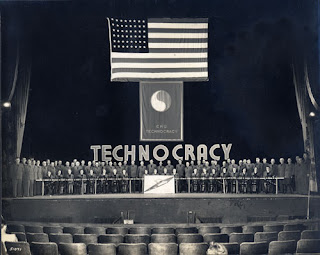Theism is the belief that there is at least one supernatural god, a perfect (all-powerful, all-knowing) person who created the natural universe and who intervenes in that universe, particularly in human affairs. Theism is the philosophical content of religions which is almost never discussed in mainstream journalistic coverage of religions, whether on the radio or TV, in newspapers or magazines. In the West, addressing the philosophical merits of theism would inevitably call the monotheistic religions into question and alienate consumers of news, most of whom pretend to follow a traditional religion without actually doing so. In short, monotheistic religions are currently farcical.
The farce begins with the theist’s erroneous notion that theism can and should be rationally supported, as though theism were something like a scientific theory. The scientistic blunder here is monumental and often motivated by comically misplaced arrogance, as in the case of Catholic pomposity or the militant Islamist’s woefully perverse delusions of grandeur. A monotheist’s condescension towards a nontheist or an Eastern mystic is like an ant’s deeming itself to be taller than a giraffe. (I’ll speak of nontheism rather than atheism, because “atheism” has negative social connotations which are irrelevant to the core issue I mean to address.) However, the farce ends when we see that theism’s irrationality may not matter and that the theist may have the last laugh. The rational case against theism may
itself rest on a category error. Indeed, the rational ideal that our
philosophical beliefs be logical and attuned to the evidence conflicts with
the more Humean reality confirmed by cognitive scientists, that humans are not
as rational as we might prefer to think. I’ll provide an overview here of why
theism is indeed irrational, but then I’ll turn to what I’ll call the existentialist’s
nonrational case for theism.
Mysticism and Literalism
First of all, we need to observe the split in all religions between their mystical and exoteric traditions. The mystic seeks transcendent experience of the divine, not a rational justification for intellectual beliefs. She understands that language and logic simplify and thus to some extent falsify reality as they map it, and that in any case those tools evolved to provide us with practical knowledge of how to get by in the natural world, not to contact anything that might lie beyond that world. The mystic prefers a direct, intuitive grasp of supernatural reality, but if she’s forced to speak of what she thereby grasps, she often resorts to myths and metaphors which she knows shouldn’t be taken seriously.
Mysticism is central to Eastern religions but marginalized in Western, monotheistic ones. What replaces mysticism at the heart of Judaism, Christianity, and Islam is a colossal misunderstanding, called literalism, which is the mistaking of exoteric knowledge for the esoteric, mystical kind. Literalists err in literalizing the mystic’s metaphors. So while a mystic may compare God, that which transcends nature, to a loving parent, the literalist falls in love not with God but with the image, succumbing to our primitive, tribal inclination to worship an idol. From the mystic’s viewpoint, the literalist’s ego gets the better of her; like Narcissus she’s captivated by her own reflection, in this case by an image poured out of a mystic’s mind to provide a sketchy map of what transcends our rational comprehension. So one of the initial mistakes made by Western theists, at least, is the elevation of their anti-mystical tradition. Thus, Christians persecuted their Gnostics and Muslim jurists have a strained relationship with Sufis.
Indeed, when theism is reduced to literalistic idolatry, the contents of theistic beliefs become ridiculous. The images contradict each other or are otherwise preposterous, leading the indignant literalist into a web of falsehoods as she has to rationalize the absurdities that inevitably follow when she naturalizes and anthropomorphizes something that’s supposed to be supernatural. For example, how could God literally have thoughts and feelings with no physical brain or other substrate? If a substrate is needed for psychological states, who made God’s? Needless to say, if God evolved, he’s not the creator of everything. Literalists have traveled far, looking for Eden or Noah’s ark, always ready with a spurious explanation when they fail to find any archeological evidence for the biblical tale’s historicity. And literalistic theology becomes the proverbial tennis match played without a net. So-called systematic theology tomes are written to map every nuance of theistic imagery, arriving at creeds that purportedly specify God’s attributes--including, no doubt, what God had for breakfast the other day.
 The current Diagnostic and Statistical Manual of Mental Disorders (DSM-IV) defines “mental disorder” as “a clinically significant behavioral or psychological syndrome or pattern that occurs in an individual and that is associated with present distress...or disability...or with a significantly increased risk of suffering death, pain, disability, or an important loss of freedom. In addition, this syndrome or pattern must not be merely an expectable and culturally sanctioned response to a particular event, for example, the death of a loved one...Neither deviant behavior (e.g. political, religious, or sexual) nor conflicts that are primarily between the individual and society are mental disorders unless the deviance or conflict is a symptom of a dysfunction in the individual, as described above” (xxxi, my emphases).
The current Diagnostic and Statistical Manual of Mental Disorders (DSM-IV) defines “mental disorder” as “a clinically significant behavioral or psychological syndrome or pattern that occurs in an individual and that is associated with present distress...or disability...or with a significantly increased risk of suffering death, pain, disability, or an important loss of freedom. In addition, this syndrome or pattern must not be merely an expectable and culturally sanctioned response to a particular event, for example, the death of a loved one...Neither deviant behavior (e.g. political, religious, or sexual) nor conflicts that are primarily between the individual and society are mental disorders unless the deviance or conflict is a symptom of a dysfunction in the individual, as described above” (xxxi, my emphases).


















